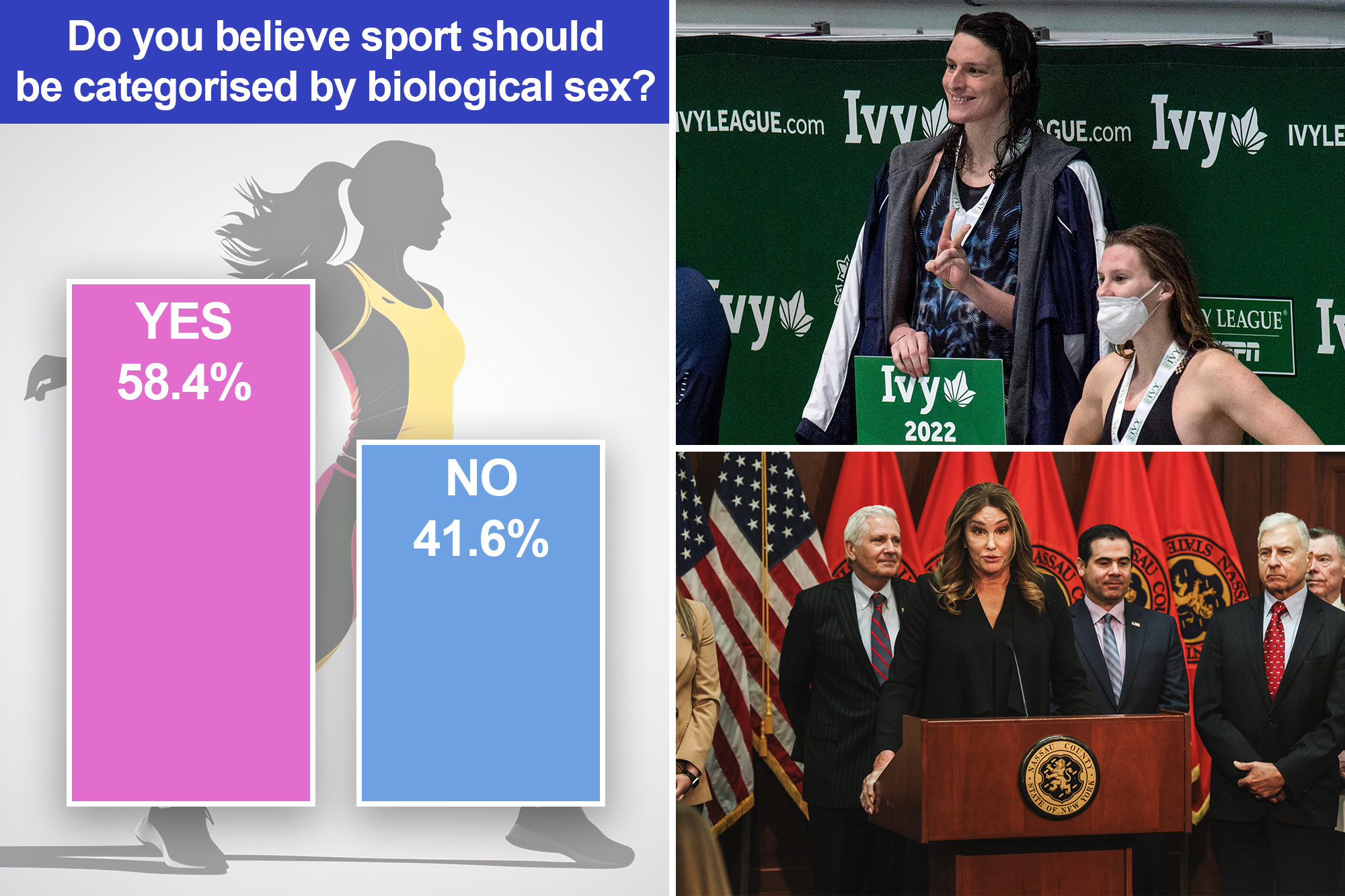
A majority of elite, world-class female athletes prefer sports to be categorized by their competitor’s biological sex rather than their gender identity, a new study shows.
The report, published in the Journal of Sports Sciences on April 16, polled 175 “national, elite and world-class athletes eligible to compete in the female category regarding transgender inclusion and eligibility.”
“Most athletes favored biological sex categorization (58%) and considered it unfair for trans women to compete in the female category, except for precision sports,” the research said.
The study categorized sports into three categories: precision sports, such as archery, sports ‘heavily reliant on physical capacity’ such as 100m sprinting, and ‘contact sports’ such as rugby union.”
“This view was held most strongly by world-class athletes regarding their own sport (77% unfair, 15% fair).”
The sportswomen disagreed with creating competition based on body or gender identity.
“The majority of athletes did not believe that categories based on gender identity, body size (mass and height) or the 2015 IOC guidance (focusing on serum testosterone) were agreeable
The female athletes considered it fair for transgender men to compete among biological males, though Olympic sports athletes felt it was unfair in contact sports and sports that are heavily reliant on physical capacity.
A majority found it unfair for transgender women to compete against biological females outside of precision sports.
“Most participants (~47%) believed it was unfair for trans women to compete in the female category of contact sports and sports heavily reliant on physical capacity, compared to ~ 38% considering it fair”
Fifty percent of the athletes felt it was fair for transgender women to compete in the female category of precision sports.
When it came to sports governing bodies, 81% of the female athletes felt there should be an improvement in inclusivity for transgender athletes.
The authors of the study believe their results could help the governing bodies navigate through the whirlwind of modern sports competition.
“The study could become an important resource for sport’s governing bodies in establishing rules and procedures.”
The study compared the opinions of current Olympic versus current Olympic Recognised sports, elite versus world-class, and current versus retired Olympic sport athletes.
The pool of athletes included 26 World champions, 22 Olympians – including two gold, two silver and three bronze medal winners – and six Paralympians.
The list of the top tier athletes, both current and retired, hailed from various Western nations with the US being the most at 36%, followed by the UK (17%), Canada (15%) and Finland (10%).
The authors of the study also noted that a vast majority (94.2%) of those polled support gender transition outside of competition.
“Importantly, high-level athletes’ opinions show that transgender inclusion is valued, but fairness must take priority for athletes at the highest competitive level,” Dr Shane Heffernan of Swansea University said.
Last week, a trans high school athlete cruised to an easy victory in the first heat of the Girls 200 Meters Varsity at the Sherwood Need for Speed Classic in Oregon.
McDaniel High School sophomore Aayden Gallagher ran a 25.49, while the competitors crossed the finish line around the 31-second mark.
Gallagher would eventually place 2nd in the finals losing to winner Aster Jones.
A transgender golfer with dreams of making it to the WPGA, was recently banned from a women’s professional tour after administrators changed a rule requiring all competitors must be “a biological female at birth.”
Hailey Davidson announced in March she was removed the NXXT Women’s Pro Tour
The tour was forced to make an about-face from its original decision to have Davidson compete, with her even winning a tournament that increased her chances of earning a spot on a qualifying tour.
The National Association of Intercollegiate Athletics announced earlier this month that it has barred transgender athletes from competing in women’s sports.
“Only NAIA student-athletes whose biological sex is female may participate in NAIA-sponsored
female sports,” the body said in its announcement of the decision.
The NCAA, the largest college athletics governing body, was met with opposition over the last couple of years when it allowed University of Pennsylvania swimmer Lia Thomas, the first openly trans woman to win an NCAA Division 1 title.
On Long Island, Nassau County Executive Bruce Blakeman signed a law banning trans athletes from competing against biological girls at any of the county’s 100 athletics facilities.
The ban was supported by ex-Olympic champion Caitlyn Jenner, who appeared alongside Blakeman at a press conference announcing the ban in March.
Jenner — arguably one the world’s most famous trans public figures — said that biological males should not be allowed to compete in female sports in order to “protect the integrity of competition.”














